RE Curriculum Intent
RE at Sproatley has a central role in living out our vision, to encourage an understanding of the meaning and significance of faith, which recognises and respects the beliefs and religions of others, showing tolerance and valuing diversity. Our RE curriculum is underpinned by our East Riding Agreed RE Syllabus and using Understanding Christianity to teach Christianity. Through RE, our pupils will develop religious literacy and knowledge of significant religious worldviews including Christianity, Islam, Judaism and Hinduism and non-religious worldviews. Children are given the opportunity to develop the understanding and skills needed to appreciate and appraise varied responses to these big questions, making sense of religion and worldviews and reflecting on their own ideas and ways of living. At Sproatley, we strive for our children to experience diversity firsthand, culturally and within religions preparing them for life in our diverse country.
RE Curriculum Implementation
RE is taught weekly, focussing on the knowledge and skills stated in the East Riding SACRE Agreed Syllabus. Teachers will have identified the key knowledge and skills to be developed in each unit to ensure progression across each of the school years and phases. The key knowledge and vocabulary linked to this will be revisited regularly to ensure that the children are retaining the knowledge. Children have opportunities to either engage with a religious workshop or visit a religious place of worship linked in with their learning and big question at that time.
Substantive knowledge - the knowledge about religions and non-religious world-views taught. Golden threads of substantive knowledge and key concepts run through our RE curriculum, building a deeper understanding of religions over time.
Disciplinary knowledge - these are the ‘lenses’ we look through (or ways of knowing) that help children develop RE skills:
Theology: believing This is about believing. It looks at where beliefs come from, how they have changed over time, how they are applied differently in different contexts and how they relate to each other.
Philosophy: thinking This is about thinking. It is about finding out how and whether things make sense. It deals with questions of morality and ethics. It takes seriously the nature of reality, knowledge and existence.
Human or social sciences: living This is about living. It explores the diverse ways in which people practise their beliefs. It engages with the impact of beliefs on individuals, communities and societies.
Substantive knowledge - the knowledge about religions and non-religious world-views taught. Golden threads of substantive knowledge and key concepts run through our RE curriculum, building a deeper understanding of religions over time.
Disciplinary knowledge - these are the ‘lenses’ we look through (or ways of knowing) that help children develop RE skills:
Theology: believing This is about believing. It looks at where beliefs come from, how they have changed over time, how they are applied differently in different contexts and how they relate to each other.
Philosophy: thinking This is about thinking. It is about finding out how and whether things make sense. It deals with questions of morality and ethics. It takes seriously the nature of reality, knowledge and existence.
Human or social sciences: living This is about living. It explores the diverse ways in which people practise their beliefs. It engages with the impact of beliefs on individuals, communities and societies.
RE Curriculum Impact
Children can talk with confidence about what they have learned, showing enthusiasm for learning and good learning behaviours. Children build on prior learning, making thoughtful links between ideas and developing deeper understanding of the golden threads of key substantive knowledge and developing disciplinary knowledge. Children are independent learners who can think creatively and critically, reflecting on their own personal responses and beliefs.
Teachers are knowledgeable and confident in teaching all areas of the curriculum, planning well-sequenced progressive learning sequences and delivering high-quality lessons. Leaders share CPD and expertise, coaching to support staff and monitoring strengths and areas for development with plans to address these.
Teachers are knowledgeable and confident in teaching all areas of the curriculum, planning well-sequenced progressive learning sequences and delivering high-quality lessons. Leaders share CPD and expertise, coaching to support staff and monitoring strengths and areas for development with plans to address these.
 BBC News – Education
BBC News – Education
- NHS weight management service offered to under foursSeverely obese pre-schoolers in Somerset are among the first to receive NHS weight management help.
- England set for highest suspensions in school yearUnions say schools do not have enough resources to support persistently disruptive pupils.



